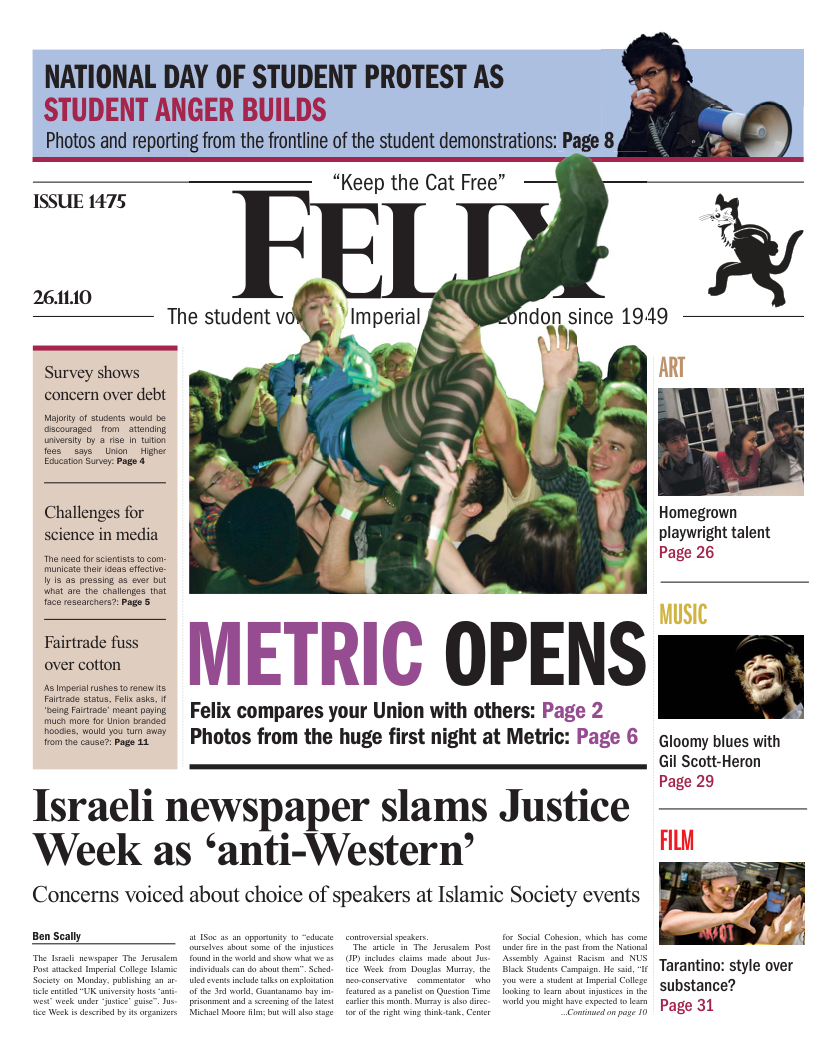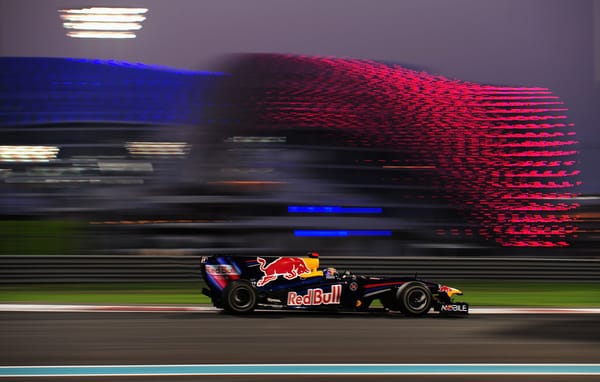Justice is a powerful word and it must not be misused
There are questions to be answered about Justice Week
Justice is a powerful word. It can transcend borders to liberate the wrongly accused, to rescue the vulnerable and to topple governments. If used cynically, however, it can provide a veneer of respectability where it is not deserved.
One of the senior editors on this newspaper is an Iraqi Muslim; another is an Israeli Jew. We understand what it means to feel threatened on campus, and know how hurtful it can be to have people presume to speak in your name. Consequently, the purpose of this editorial is not to attack Imperial's Islamic Society, but rather to defend its Muslim students.
With Islamic societies around the country under increasing scrutiny from official quarters, Muslim students are right to feel vulnerable and targeted. The world is clearly suspicious and worried of what goes on behind the closed doors of British campuses, and so long as the enemy is seen to be at the gates, the temptation will be to pull up the drawbridge and man the battlements.
But further isolation is not the answer. National and religious societies have a responsibility towards their members to ensure that they represent all views in an open, positive atmosphere. Such societies are in the unique position of having a membership which could not be more different when it comes to age, choice of degree, background or political leaning. And yet when the society speaks, it speaks for everyone. The bonus of having large numbers of students who are reliant on you for help and pastoral care brings with it a responsibility to represent their views with sensitivity.
There has been little of this inclusive spirit visible on campus over the past five days. This week, coinciding as it did with National Interfaith Week, could have been an unparalleled opportunity for openness and dialogue. A chance to show critics that Islamic societies are decidedly not, as is frequently and unfairly claimed, sites of radicalisation and extremism.
Instead, Muslim students on campus were presented with a series of events dedicated to a decidedly one-sided view of justice in Islam. These consisted of talks on the exploitation of the third world, human rights violations in Gaza and Guantanamo, and the Islamic view of capitalism.
Are these the injustices that Muslims feel need combating? Not the genocide in the Sudan, or the murder of Kurds in Turkey? Not the victimising of Muslim women and homosexuals in Iran and Saudi Arabia or the limitations imposed on democracy in Syria and Egypt? These are issues that transcends political viewpoint or selective apathy: if you claim to associate yourself with the concept of Justice, these are questions you must answer.






